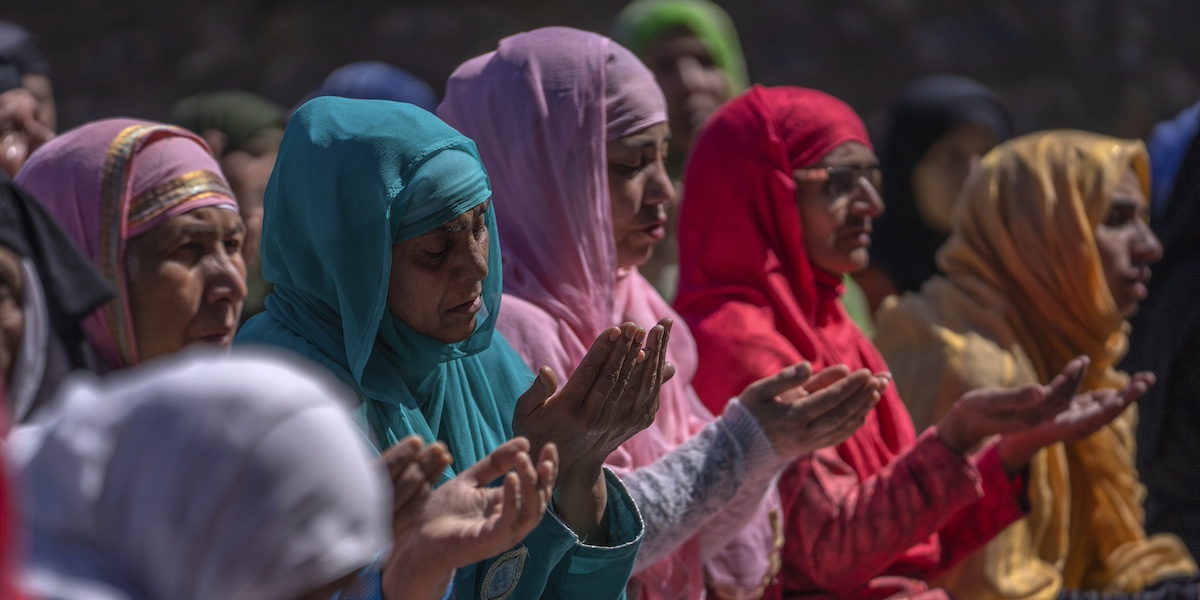Loading player
Last week Uttarakhand, a state in northern India inhabited by more than ten million people, has approved a new Uniform Civil Code, that is, a new text that creates laws that all citizens of the state must follow, regardless of whether they are Hindu, Muslim, Christian, or belong to other minority groups. Among other things, this new code bans polygamy, an extremely controversial practice opposed by women’s rights groups, which is still practiced among some Muslim communities.
The project passed thanks to the votes of Prime Minister Narendra Modi’s Hindu nationalist Bharatiya Janata Party (BJP), but was highly criticized by some leaders of the Indian Muslim community, which includes 200 million people, because it was considered discriminatory towards their minority. The adoption of a Uniform Civil Code is one of the main promises of the BJP’s political manifesto and it is likely that other states will follow Uttarakhand in view of the elections next spring.
The controversies surrounding the new code show quite well the strong contradictions that exist at the moment in India, where even apparently inclusive measures risk turning into an instrument of discrimination.
Until now, India’s different ethnic and religious groups had freedom to decide how to internally handle matters such as marriage, divorce, adoption and inheritance, or could follow an optional secular civil code. The new code, however, is the same for everyone, and among other things prohibits polygamy, in particular the possibility for a man to have more than one wife, and establishes a minimum age for marriage. It guarantees equal rights to men and women on matters relating to divorce and inheritance, and equalizes children born within a marriage with those adopted, born out of wedlock or conceived through surrogacy.
These laws are in contrast to traditional Islamic law, which provides for the possibility for a man to have up to four wives and to divorce one whenever he wants by pronouncing the “talaq” three times, a formula that means “I divorce you” and which immediately makes the marriage null and void from a religious point of view. These practices, however, are adopted by an extremely small minority of Muslim people in India, and divorce through talaq had already been ruled illegal by the Supreme Court a few years ago.
Although the introduction of the Uniform Civil Code was welcomed as good news by the vast majority of women in the Indian Muslim community, who are largely against polygamy, many of them have nevertheless criticized the choice for its political significance: although it is presented by BJP as a move to give dignity and equal opportunities to women, the Code comes in a broader context of discrimination against the Muslim community by Prime Minister Modi’s party.
Over the last ten years, Modi and his party have presented themselves as defenders of Hinduism, practiced by 80 percent of Indians, even with discriminatory policies towards minorities, especially Muslims. In 2019, his government took away autonomy from the Muslim-majority region of Kashmir, and episodes of religious violence, mostly tolerated or only timidly condemned, have multiplied.
At the end of January, an important Hindu temple was consecrated, designed to become one of the most important in India, a pilgrimage and tourist destination. However, the temple stands where just over thirty years ago 150 thousand Hindu faithful destroyed a mosque built in 1528 in a few hours: that event was one of the most notable episodes of the historic dispute in India between Hindus and Muslims.
In recent days many politicians and activists have pointed out how the establishment of this Unitary Code, although it contains some important and shared measures, is at the same time an attack on India’s multi-religious society and that helping Muslim citizens to emancipate themselves is at the same time itself an excuse to repress some rights of Muslim communities and other minorities, who have lost the possibility of deciding autonomously on various issues of civil legislation.
This is for example the position of Sadaf Jafar, a Muslim woman interviewed and Reuters. Jafar is currently facing a trial against her husband in court, who she has denounced for marrying another woman without her consent, but still claims that the new law will bring more problems than solutions for people in his condition, if the broader context.
